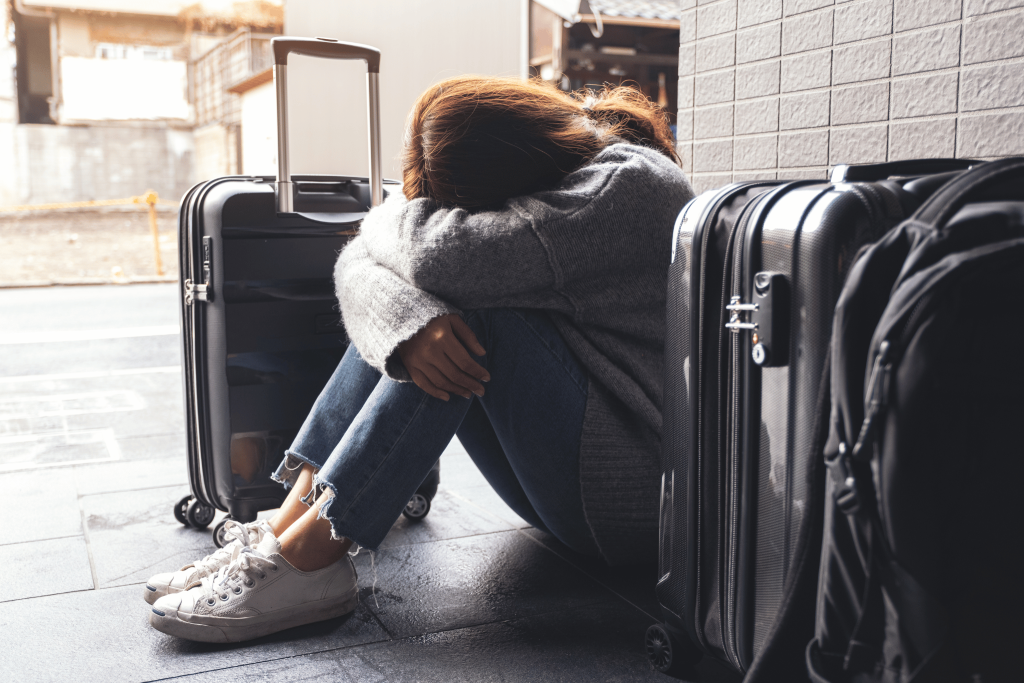Travel is often touted as an essential life experience—a way to broaden horizons, gain perspective, and collect unforgettable memories. Influencers, marketers, and even well-meaning friends insist that everyone must travel to live a fulfilling life. But what if travel isn’t actually for everyone? What if, for some, the costs—financial, environmental, and emotional—outweigh the benefits? The case against travel is an unpopular one, but an opinion worth examining. Let’s explore why travel might not be the universal good it’s made out to be.

1. The Financial Burden of Travel
Travel is expensive, and for many, the financial strain simply isn’t justified. According to a 2023 study by Bankrate, nearly 42% of Americans said they would go into debt to afford a vacation, with the average traveller spending $1,983 per trip. For those living paycheck to paycheck, prioritising travel can mean sacrificing emergency savings, retirement contributions, or even basic necessities.
Moreover, the pressure to travel—fueled by social media—can lead to “experience inflation,” where people feel compelled to take increasingly extravagant trips just to keep up. The reality is that not everyone can (or should) prioritise travel over financial stability.
Apps like Tengah can help mitigate some of the financial burden by providing travellers with real-time price insights based on actual transactions, ensuring they get fair deals and avoid overpaying. However, even with tools that promote price transparency, the overall cost of travel remains a significant barrier for many.

2. The Environmental Cost of Frequent Travel
Tourism accounts for 8-10% of global greenhouse gas emissions, with air travel being a major contributor. A single round-trip flight from New York to London emits approximately 1 ton of CO₂ per passenger—equivalent to the carbon footprint of a year’s worth of driving.
While sustainable travel options exist, mass tourism often leads to overtourism, damaging local ecosystems and communities. Places like Venice, Bali, and Iceland have struggled with overcrowding, pollution, and cultural erosion due to excessive tourism. For environmentally conscious individuals, the ethical dilemma of travel may outweigh its benefits.
3. The Myth of Travel as Self-Discovery
Travel is frequently marketed as a path to self-improvement—a way to “find yourself” or “escape the routine.” Yet, research suggests that the transformative effects of travel are often overstated. A 2019 study published in Nature Human Behaviour found that while travel can provide short-term happiness boosts, it doesn’t necessarily lead to long-term personal growth.
In fact, for some, travel can be stressful and disorienting. Introverts, neurodivergent individuals, or those with anxiety may find unfamiliar environments overwhelming rather than enriching. The idea that travel is universally beneficial ignores the reality that people have different needs and comfort levels.

4. The Local Alternative: Depth Over Distance
There’s an assumption that meaningful experiences only happen far from home, but this ignores the value of deep local engagement. Exploring one’s own city, volunteering, or investing time in hobbies can be just as enriching as international travel—without the downsides.
A 2022 study in The Journal of Positive Psychology found that people who engaged in “micro-adventures” (small, local explorations) reported similar levels of happiness as those who took big trips. The key isn’t distance—it’s curiosity and presence.
5. The Pressure to Perform (and Post) Travel
Social media has turned travel into a performative act. The rise of “Instagram tourism” means many trips are planned not for personal enjoyment, but for online validation. A 2021 survey by Expedia found that 54% of millennials felt pressure to post travel content to appear well-traveled.
This commodification of travel can lead to burnout and dissatisfaction—people return from trips exhausted from documenting every moment rather than truly experiencing it. If travel becomes just another obligation, is it still worth it? Does the case against travel, ring true for your stress levels?

Travel Is a Choice, Not an Obligation
Travel can be wonderful, but it’s not a moral imperative. For some, the financial strain, environmental impact, or personal discomfort makes it an impractical or undesirable pursuit. Instead of defaulting to “travel more” as life advice, we should encourage people to seek fulfilment in ways that align with their values—whether that’s local exploration, creative pursuits, or simply enjoying the comfort of home.
The case against travel isn’t about dismissing its joys, but about recognising that it’s not a one-size-fits-all experience—and that’s perfectly okay.



